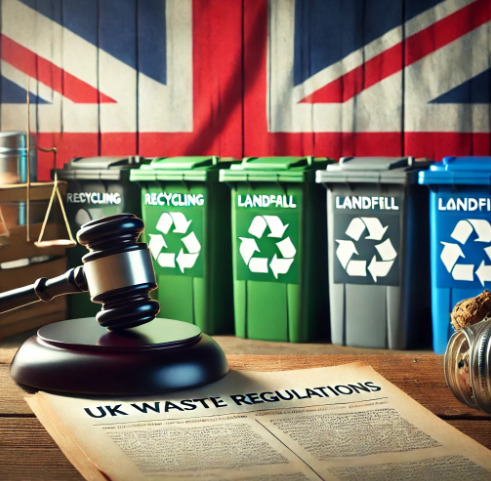
A major shift in the UK’s approach to waste management is beginning to show promising results, as simplified recycling legislation introduced earlier this year has led to a significant increase in recycling rates across the country.
The legislation, which came into effect in April 2025, aims to standardise recycling rules across all local authorities in England, Wales, Scotland, and Northern Ireland. It replaced a patchwork of regional policies with a unified system that mandates consistent rules for separating paper, plastics, metals, and organic waste — making it easier for households and businesses to understand what goes where.
Clear Rules, Clear Results
According to figures released by the Department for Environment, Food and Rural Affairs (DEFRA), the UK’s national recycling rate rose from 44.5% in 2024 to 52.3% in the first half of 2025 — the fastest six-month growth recorded in over a decade.
“People were confused by the old system. What was recyclable in one borough could end up in landfill just a few miles away,” said Sarah Donnelly, Director of Waste Policy at DEFRA. “By harmonising the rules, we’ve removed a huge barrier to public participation.“
The legislation also includes provisions to require clear labelling on packaging and introduce penalties for non-compliance by manufacturers and retailers. This has spurred supermarkets and brands to re-evaluate packaging design and invest in recyclable alternatives.
Industry and Environmental Impact
Waste management companies have welcomed the move, citing improved efficiency and reduced contamination in recycling streams.
“Standardised input means cleaner material and lower processing costs,” said Michael Hughes, Operations Manager at ReCycle UK. “We’re able to recover more usable material and send less to incineration or landfill.”
Environmental groups also applauded the policy but cautioned that this should be a first step. “We need to see continued investment in circular economy infrastructure,” said Emma Kaur, spokesperson for Friends of the Earth. “But this legislation shows how clarity and political will can drive real change.”
Public Reaction
Surveys conducted by YouGov in May 2025 show that 73% of UK residents found the new recycling rules easier to follow, and 68% reported recycling more often as a result.
“It’s just less stressful,” said London resident Alicia Patel. “I used to second-guess every plastic tub. Now I know exactly what to do.“
What’s Next?
Looking ahead, the government has pledged to review the legislation annually and expand the policy to include electronics and textiles by 2026. A new public education campaign is also being launched this summer to reinforce the rules and encourage even higher participation.
For now, experts agree that the simplified system is a win for households, local councils, and the environment alike.
“This is a textbook example of how practical policy reforms can drive behaviour change,” said Dr. Neil Chambers, environmental economist at the University of Manchester. “When you make sustainable choices easier, people respond — and the planet benefits.”
